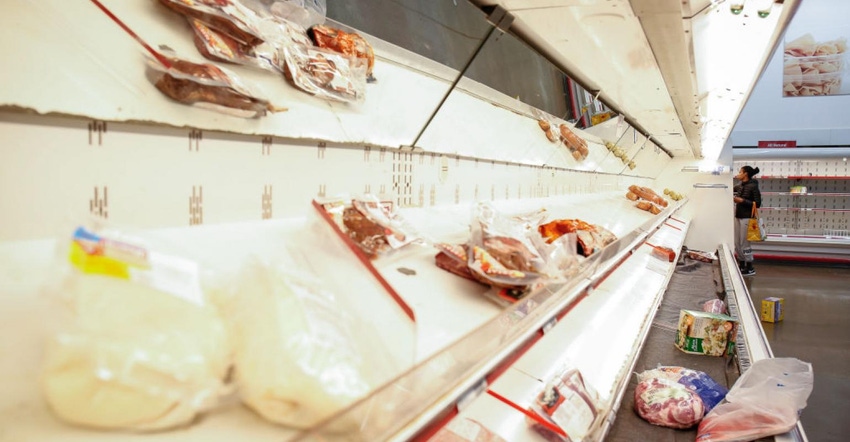Is the United States prepared for acts of agroterrorism?
As election day draws closer, civil unrest could pose a major threat to our nation’s food security. Are we vulnerable to agroterrorism in the United States today?
September 21, 2020

Forty-two days — that’s how long we have until the 2020 election. Do you feel a sense of uneasiness?
With the political discourse heating up and polarization in both Washington, D.C. and in the streets across American cities creating more division than ever before, I fear for the civil unrest that’s to come. And that applies to whichever way the wind blows in this election.
We got a taste of it earlier this year. Toilet paper shortages. Then meat shortages. Then those mystery seeds from foreign countries started popping up in mailboxes. And how about those rolling blackouts?
What happens when there’s chaos in the streets and truckers can’t move supplies? What’s a direct threat to our national security?
Food security.
If food, water and essentials become scarce due to violence in the streets, we are in serious trouble.
I don’t say this to alarm you. I don’t say this to spread fear. I say this because when it comes down to it, we can survive school shutdowns, government lockdowns, sports and concert cancellations, political fights on social media and sensational headlines in the news.
But what we cannot survive is not having access to food, water, medicines and the essentials to life.
Agroterrorism has always been a threat to our national security, and as food producers who live on the very farms and ranchers that supply our nation with the essentials to life, this should be top of mind for us. That's true both in our roles as members of this greater United States community and as private owners of land, livestock, grains and other commodities.
This issue was highlighted recently in a Forbes article titled, “3 things COVID-19 teaches us about agroterrorism.”
Written by Michael Helmstetter, the article highlights some of our nation’s vulnerabilities and discusses how COVID-19 has impacted the United States — the land of affordable and abundant food.
Helmstetter writes, “While hostile attacks on animals and crops have existed as long as humans have been farming, agroterrorism has been of particular national concern since 9/11. Troops discovered U.S. agricultural documents in an Al Qaeda hideout in Afghanistan in 2002, including ‘10 pathogens [that] targeted food, six [that] targeted livestock and poultry, and four [that] targeted crops.’
“The U.S. already has a strong biosecurity backbone, with modern tools available to fight pests and weeds, ample productive farmland, thorough sanitation regimens and more. Yet the immense size and complexity of our ag infrastructure, combined with the lack of coordination between agencies, leaves gaping holes in agroterrorism protection.
"Some of these holes overlap with lessons taught by the slow national reaction to COVID-19. With the benefit of hindsight, what can we take with us to do better next time?”
Read his bulleted list of strategies by clicking here.
So would an act of agroterrorism come from a domestic or foreign threat? This is uncertain; however, the Federation of Animal Scientists (FAS) offers us some insights on the motivational aspects of agroterrorism.
Here is an excerpt from FAS: “Some terrorism analysts doubt that attacks on agricultural targets would appeal to terrorists, who generally seek to produce high-profile events that will attract media attention. Killing crops, cows, and pigs would not have the same terrorizing effect as lethal attacks against human beings. If, however, the aim of a terrorist group is to inflict major economic damage on a company or country, then agroterrorism is a plausible threat.”
According to analyst Peter Chalk of the RAND Corporation, “Given its ease of execution and potential to elicit a highly ‘favorable’ cost-benefit ratio, agroterrorism may be perfectly suited to the type of low-cost but highly disruptive attacks that al-Qaeda has necessarily been forced to adopt in the 9/11 era.”
Now, more than ever, our industry needs to take extra precautions against acts of agroterrorism. I call on President Donald Trump and USDA Secretary Sonny Perdue, along with our major animal agricultural commodity organizations, to remain vigilant, active and aware of the posing threat to our national security — our food security.
As the race to election day draws closer, you can feel the tension across the United States rise. Foreign and domestic enemies may be looking at our food supply, and I want everyone to be aware of what this could potentially mean for hungry people, for our economy and for our security and peace as American citizens.
The opinions of Amanda Radke are not necessarily those of beefmagazine.com or Farm Progress.
About the Author(s)
You May Also Like




.png?width=300&auto=webp&quality=80&disable=upscale)
